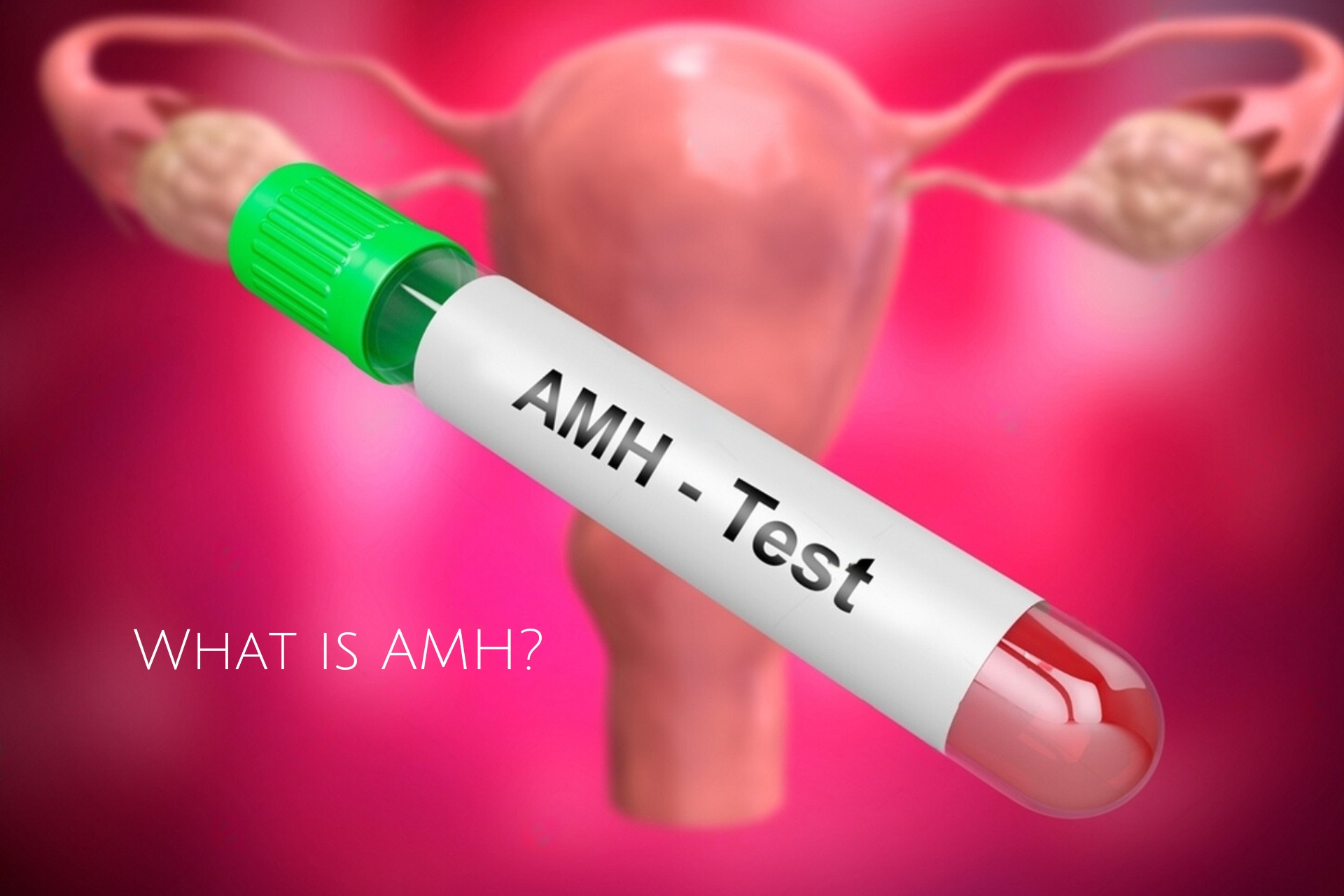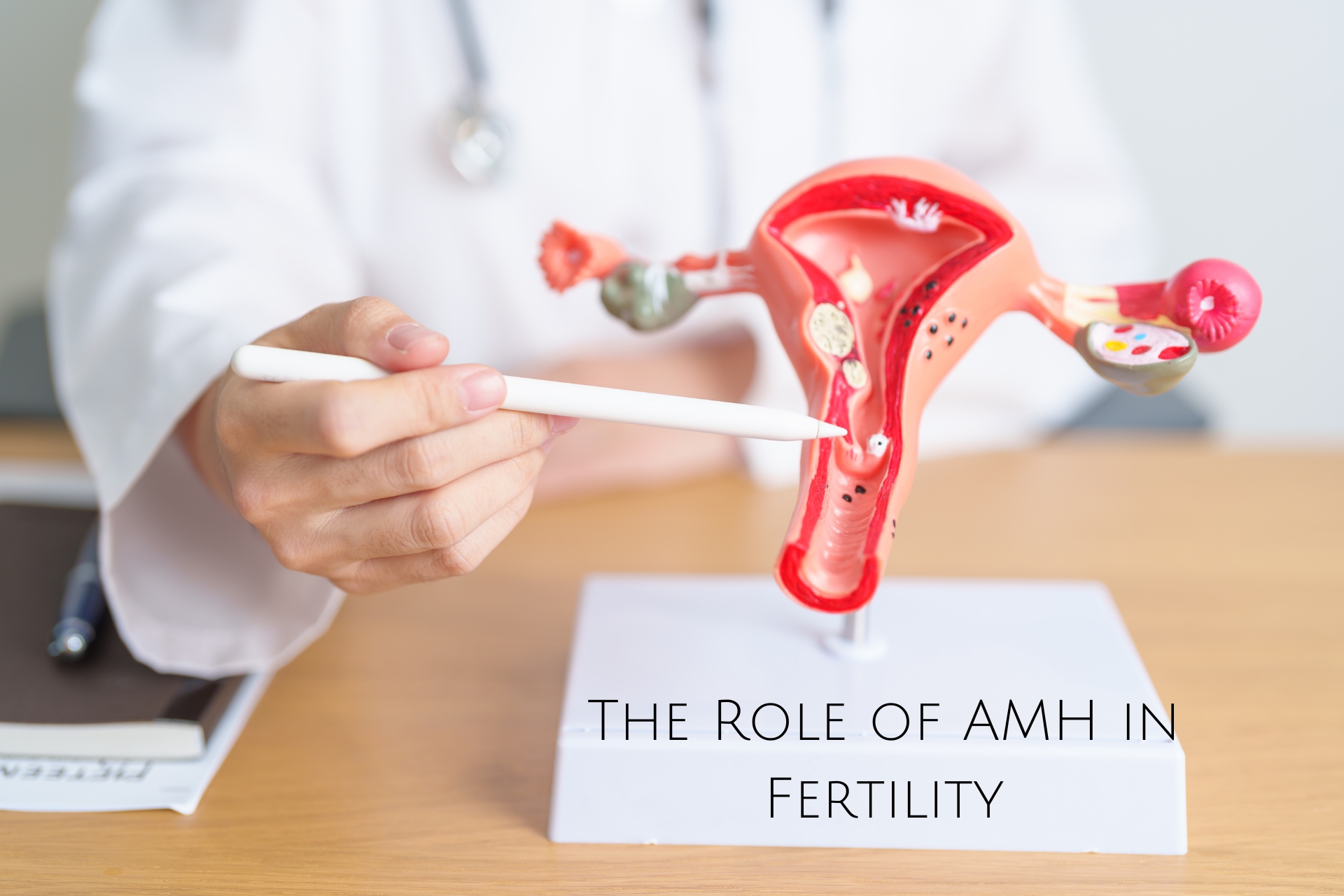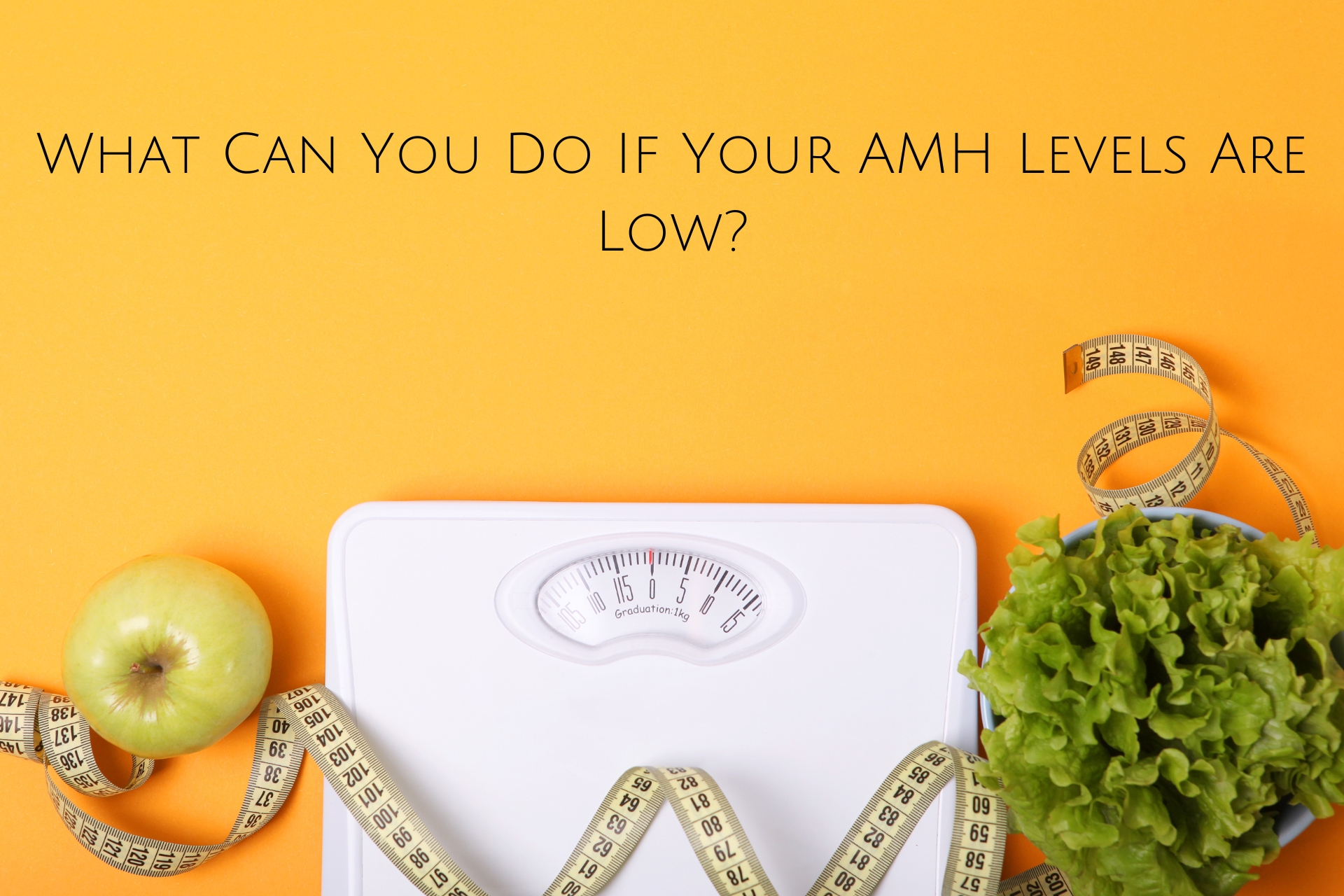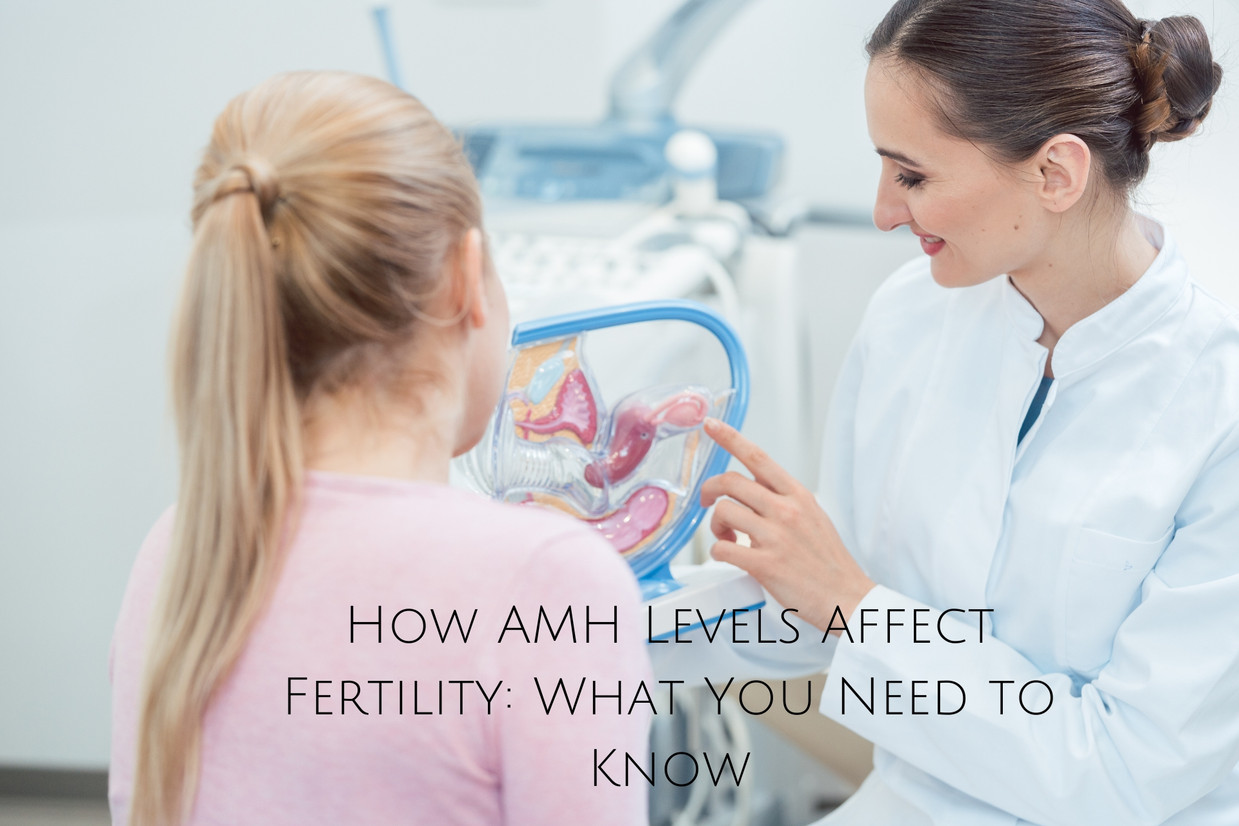How AMH Levels Affect Fertility: What You Need to Know
Fertility is a deeply personal journey, shaped by a range of factors including genetics, age, lifestyle, and hormonal health. One crucial hormone that plays a significant role in fertility is Anti-Müllerian Hormone (AMH). This hormone is essential in understanding a woman’s ovarian reserve — the number of viable eggs remaining in her ovaries — and it provides valuable insights into her reproductive potential. In this blog, we will explore what AMH is, how it influences fertility, what abnormal AMH levels can mean, and how women can manage or improve their fertility based on AMH test results.
What is AMH?

Anti-Müllerian Hormone (AMH) is produced by cells within the ovarian follicles, the tiny sacs in the ovaries where eggs develop. These follicles are present from birth, and each one contains an immature egg. AMH plays a vital role in regulating the growth of these follicles. Essentially, the hormone serves as a marker of ovarian reserve, indicating the quantity of eggs a woman has left. However, AMH is not a measure of the quality of the eggs, which is also a key factor in fertility.
Unlike other hormones related to the menstrual cycle, such as estrogen or progesterone, AMH levels remain relatively stable throughout a woman’s cycle, making it an excellent tool for assessing ovarian function at any time during the year. This stability allows AMH to serve as a more reliable indicator than other fertility-related hormones, especially in women who have irregular cycles or those undergoing fertility treatments like IVF.
The Role of AMH in Fertility

Understanding the role AMH plays in fertility can help you make better-informed decisions about reproductive health. AMH primarily provides insights into two important areas of fertility:
- Egg Reserve and QualityAMH levels are directly correlated with the number of eggs remaining in a woman's ovaries. Higher AMH levels typically indicate a larger egg reserve, while lower AMH levels suggest fewer eggs. As women age, the ovarian reserve naturally decreases, and so does AMH production. This decline is most noticeable after age 35. However, AMH levels can vary significantly from woman to woman — some women with low AMH may still have the ability to conceive, while others with higher AMH levels may face fertility challenges.
- Predicting IVF SuccessFor women undergoing fertility treatments, particularly in vitro fertilization (IVF), AMH levels can help predict how well they will respond to ovarian stimulation. Higher AMH levels generally suggest that a woman will respond well to IVF, meaning she is likely to produce a good number of eggs during stimulation. AMH testing allows fertility specialists to customize treatment plans, helping them tailor medication doses and the number of cycles necessary for a successful outcome.
Interpreting AMH Levels: What Do Your Numbers Mean?

AMH is measured through a simple blood test, and the results are typically reported in nanograms per milliliter (ng/mL). Understanding the meaning of these numbers is crucial for determining fertility potential. Below is a breakdown of what different AMH levels generally indicate:
- High AMH (>3.0 ng/mL)A high AMH level may be associated with conditions such as polycystic ovary syndrome (PCOS), where there is a higher number of small, immature follicles in the ovaries. While a high AMH level suggests a larger ovarian reserve, it doesn’t guarantee better fertility. Moreover, high AMH can also increase the risk of ovarian hyperstimulation syndrome (OHSS) during fertility treatments like IVF.
- Normal AMH (1.0–3.0 ng/mL)Normal AMH levels indicate a healthy ovarian reserve, and women within this range are typically in a good position to conceive naturally or with the help of assisted reproductive technologies. Women with normal AMH levels are likely to have a balanced number of eggs available for ovulation and are better candidates for treatments like IVF or IUI.
- Low AMH (0.5–1.0 ng/mL)Low AMH levels indicate a reduced ovarian reserve, suggesting that a woman has fewer eggs available for conception. While low AMH may reduce the chances of natural conception, it doesn't necessarily make pregnancy impossible. Women with low AMH may need to consider fertility treatments, and in some cases, may explore options like egg freezing or the use of donor eggs.
- Very Low AMH (<0.5 ng/mL)Very low AMH levels are typically seen in women over 40 or those with premature ovarian insufficiency (POI), a condition where the ovaries stop functioning prematurely. Women with very low AMH have fewer eggs left and are less likely to respond to fertility treatments like IVF. However, fertility treatments can still be an option, and advanced reproductive technologies, such as egg donation, may offer a better chance of pregnancy.
Factors That Affect AMH Levels
AMH levels can be influenced by various factors, both internal and external. Some of these include:
- AgeOne of the most significant factors influencing AMH levels is age. As a woman gets older, her ovarian reserve naturally declines, which leads to lower AMH levels. This decline accelerates after age 35, and by age 40, AMH levels have typically decreased substantially. While AMH can give an estimate of ovarian reserve, it does not always reflect the egg quality, which is another critical aspect of fertility.
- Health ConditionsCertain medical conditions can affect AMH levels. For example:
- PCOS: Women with PCOS often have high AMH levels due to the presence of numerous small follicles in the ovaries. While they may have a high egg count, the quality of the eggs can sometimes be compromised, and ovulation may be irregular.
- Endometriosis: Women with endometriosis may have lower AMH levels, as this condition can cause inflammation and damage to the ovaries, leading to a reduced egg supply over time.
- Ovarian Cysts: The presence of ovarian cysts can also impact AMH levels, depending on the type of cyst and whether it affects ovarian function.
- Lifestyle FactorsLifestyle choices can also impact AMH levels. Smoking, for example, accelerates the decline of ovarian reserve and leads to lower AMH levels. Obesity and high stress levels may also influence hormonal balance and fertility. Adopting a healthier lifestyle by eating a nutritious diet, exercising regularly, and managing stress can help maintain optimal fertility health.
- GeneticsGenetics play a significant role in AMH levels. Some women may naturally have a lower ovarian reserve than others, and this is often inherited. If you have a family history of early menopause or reduced fertility, you may want to discuss this with your doctor and consider early fertility testing.
What Can You Do If Your AMH Levels Are Low?

If you find that your AMH levels are lower than expected, it’s important to remember that this doesn’t automatically mean you can’t have children. There are several options available, depending on your individual circumstances:
- Egg FreezingFor women who are not yet ready to conceive but are concerned about their AMH levels, egg freezing can be a proactive option. This process involves stimulating the ovaries to produce eggs, which are then harvested, frozen, and stored for future use. This allows women to preserve their fertility for later, offering more flexibility as they age.
- Fertility TreatmentsIf you are trying to conceive and have low AMH, fertility treatments like IVF or intrauterine insemination (IUI) may still be viable options. However, success rates can vary depending on how low the AMH levels are and whether any other factors, such as egg quality or sperm quality, are involved.
- Lifestyle AdjustmentsMaking certain lifestyle changes can help improve your overall fertility. Maintaining a healthy weight, managing stress, avoiding smoking and excessive alcohol consumption, and following a balanced diet rich in vitamins and minerals can all positively impact ovarian function and fertility.
- Consider Donor EggsIn cases of very low AMH and diminished ovarian reserve, using donor eggs may be a viable option. Donor eggs are typically harvested from younger women, ensuring better egg quality and increasing the chances of a successful pregnancy through IVF.
Conclusion

AMH levels provide valuable information about a woman’s ovarian reserve and fertility potential. While low AMH can indicate a reduced number of eggs, it doesn’t necessarily mean that pregnancy is impossible. Fertility is influenced by numerous factors, and AMH is just one piece of the puzzle. If you're concerned about your fertility or AMH levels, it’s essential to consult with a fertility specialist who can offer guidance and help you explore your options.
Whether you’re looking to conceive now or preserve your fertility for the future, understanding your AMH levels is an important step in managing your reproductive health.
Recent Posts
-
Red Nails vs Pink Nails: Which Looks More Romantic for Valentine’s Day?
Introduction: Valentine's Day approaches, and with it comes the timeless question: red nails or pink
-
The Wellness Valentine: Valentine’s Day Gift Ideas for Health & Wellness Lovers
Introduction: Valentine's Day has evolved beyond traditional red roses and chocolate boxes. In today
-
AI-Nutrition & Microbiome Tracking: The Personalized Wellness Revolution for India
Introduction: Traditional nutrition and wellness have relied on a one-size-fits-all approach, offeri





